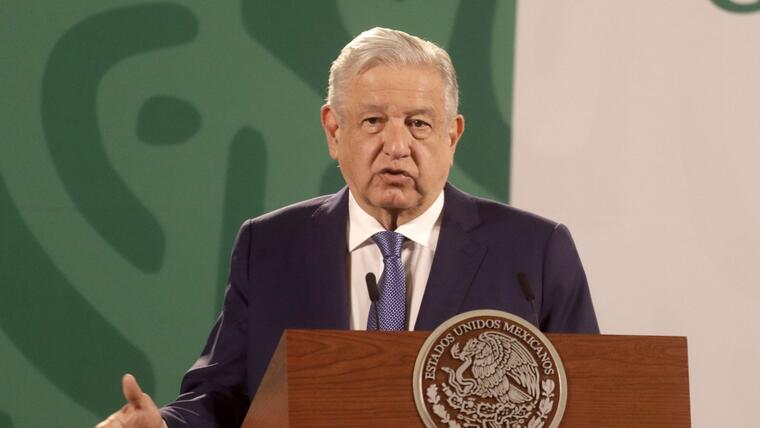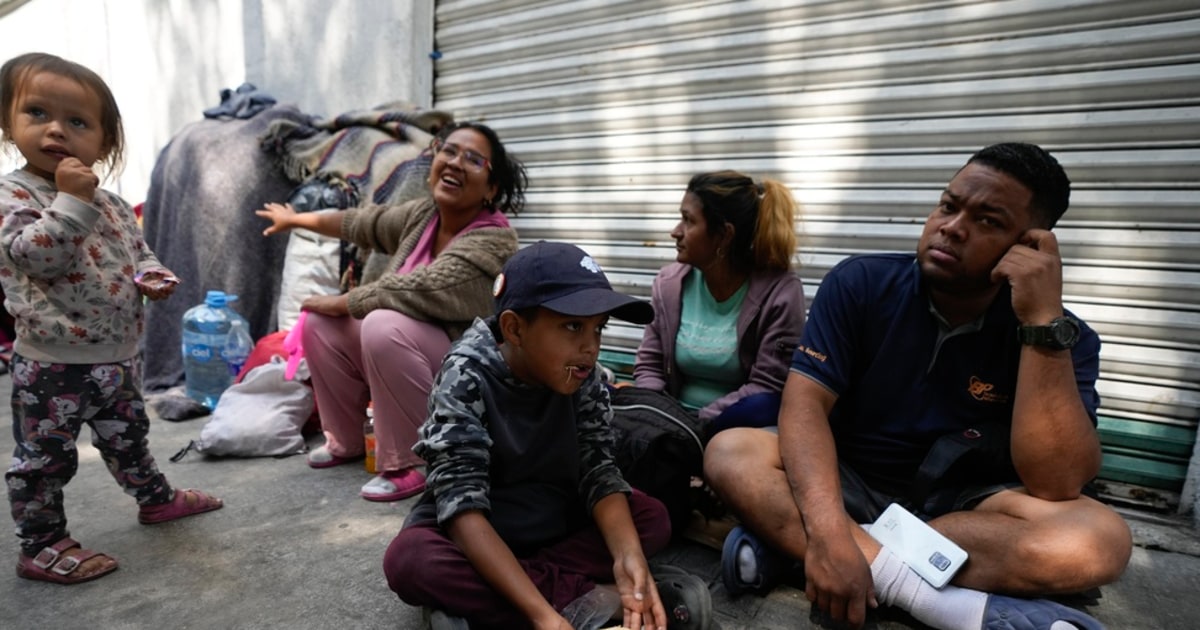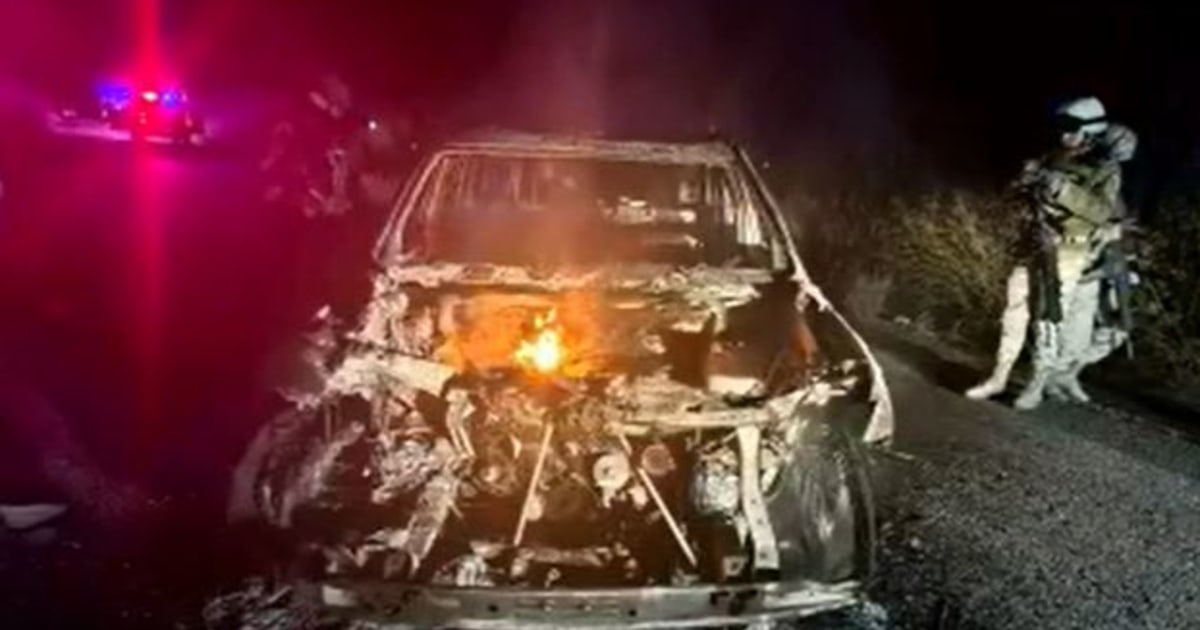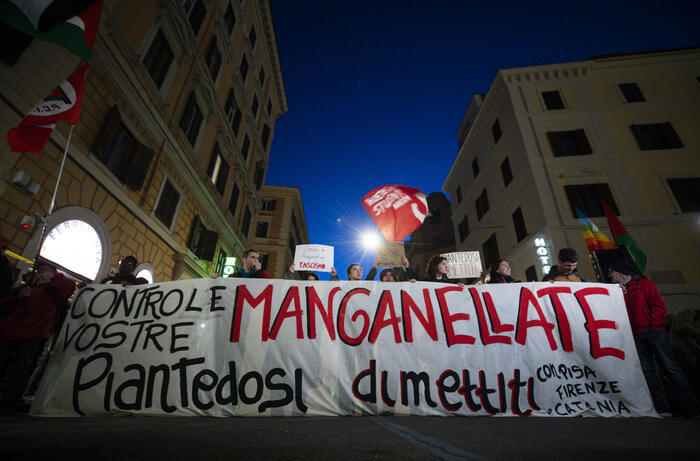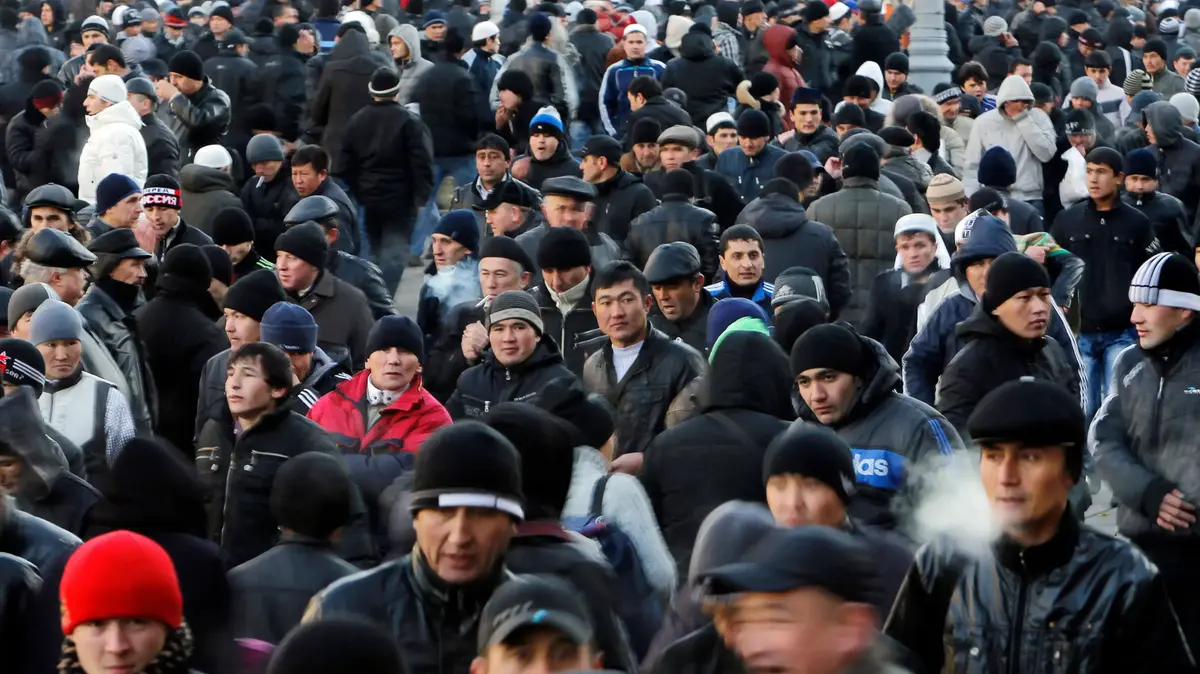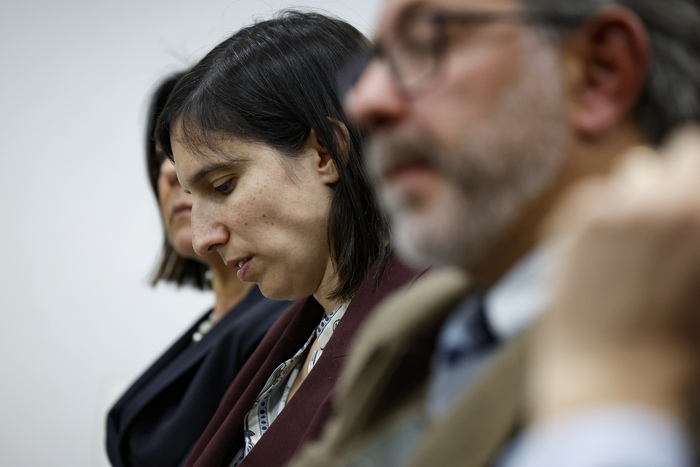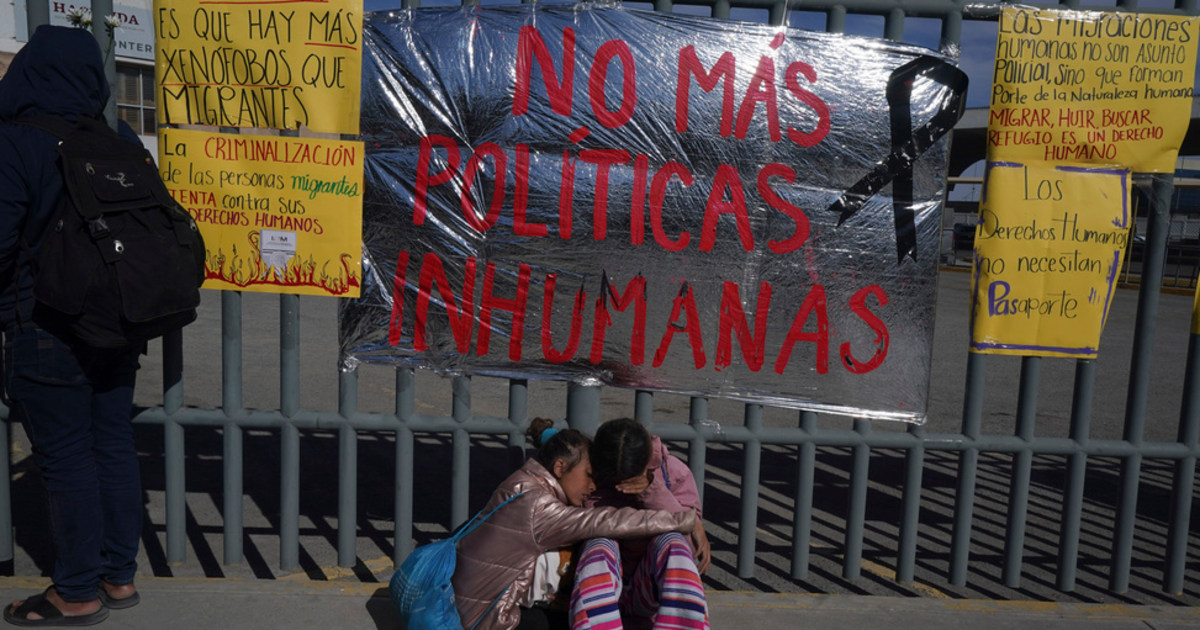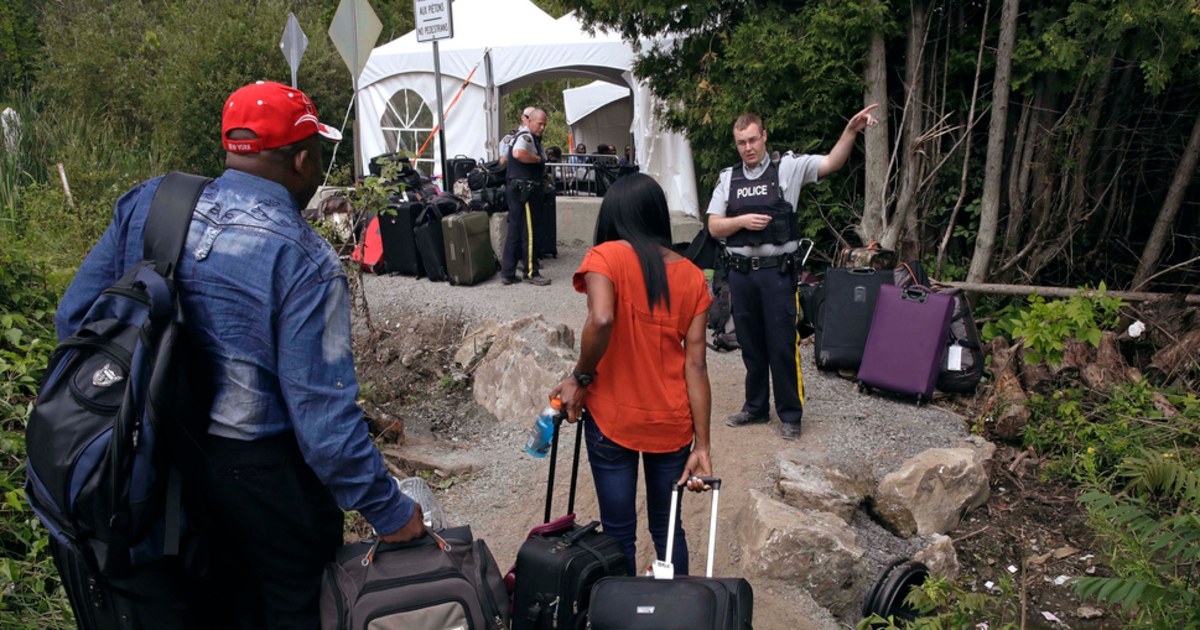Mothers and fathers cry disconsolately, lying on the floor and surrounded by armed men who yell and push at them, while their children look at them in horror.
Unconscious minors who are dragged to the authorities' vans.
Migration officers kicking migrants, chasing them through bushes and bushes to stop them.
Members of the national guard who attack with their shields, like a phalanx, against unarmed people fleeing in terror.
During the last few days, these scenes of screaming, sobbing and fear were common on the border of Mexico and Guatemala.
The escalation of violence deployed by Mexican government officials has been around the world and has been condemned by the United Nations and multiple groups for the defense of migrants.
“They
pushed me and I fell.
I fell many times and felt a lot of pain in my stomach, ”
said Chadeline Compere, a Haitian migrant in an interview with Noticias Telemundo.
[An avalanche of migrants tries to enter through a border crossing in California after a decision of a federal judge]
Since August 28, Tapachula, in the Mexican state of Chiapas, has been
the epicenter of the formation of four caravans with hundreds of migrants
- mostly Haitians, Central Americans, Cubans and Venezuelans - who advanced dozens of kilometers, but were dissolved with violent repressive actions by the federal authorities.
Mexican authorities violently dismantle a new migrant caravan in Chiapas
Sept.
3, 202101: 48
The most recent caravan left on Saturday and was disbanded in the early hours of Sunday when immigration officials arrived at a basketball court in Huixtla, Chiapas, and detained dozens of people.
“
In Chiapas there is no way to live because they treat us like animals.
We do not want to cross the border but to leave this place to look for work, we cannot even eat, ”explains Pierre, a Haitian migrant interviewed by Arturo Viscarra, an activist with the Los Angeles Coalition for the Human Rights of Immigrants (Chirla, for its acronym in English).
["We live in fear": migrants returned to Mexico suffered 6,356 violent attacks, according to a report]
From January to August of this year, the Mexican National Institute of Migration has registered
more than 147,000 undocumented people, a figure that triples the influx of last year
during the same period (48,398, according to official data).
Another worrying trend is the increase in minors, accompanied and unaccompanied, which amounted to 34,427.
Furthermore, reports of human rights abuses and violations have increased considerably.
“People are experiencing systematic violence because they are beaten, humiliated and, sometimes, transferred to Guatemala without even being from that country and with requests for refuge in Mexico. That is why
the migrants say that Tapachula is a city-prison where they cannot work because they are not given papers,
but there are also no jobs and they are not allowed to move around the state, or leave there. There is a policy of containing migration, ”says Viscarra, who has accompanied migrants during the incidents in recent days.
Huixtla, Comaltitlán, Escuintla and Mapstepec are some of the municipalities where the caravans suffered the strongest attacks.
According to activists and human rights defenders, the contingent that began its march on Saturday was made up of about 800 people, including
more than 70 young people, including children and adolescents
.
Many managed to flee and are in the surroundings of Huixtla.
López Obrador calls for human rights to be respected in migrant caravans
Sept.
2, 202101: 58
[New record of migrants at the border: "It is one of the most difficult challenges," admits the Government]
"We continue to see harassment and harassment by the authorities so that people react in legitimate defense, although this group of people is defined as a movement for freedom that only seeks to leave Tapachula to access other opportunities," says Yuriria Salvador, coordinator from the Fray Matías de Córdova Human Rights Center.
Salvador and other migrant activists denounce that they have suffered threats and intimidating actions from the authorities.
For its part, the National Human Rights Commission of Mexico condemned the attacks suffered by migrants, journalists and human rights defenders and announced that it will investigate the events that occurred during the dissolution of the recent caravans.
“The military bodies should not be involved in administrative matters and, in Mexico, migration is an administrative matter.
There is also a problem of discrimination by ethnicity and by race in immigration checks and detentions (…)
The Mexican government allows arbitrary detentions throughout the country, which is why we see these inconceivable situations
”, warns Gretchen Kuhner, from the Institute for Women in Migration.
Mexican authorities detained Central American migrants who were part of a caravan heading to Huixtla, Chiapas, on September 5, 2021.
[18% of migrant families released from Border Patrol custody tested positive for COVID-19]
What happens in Chiapas?
In recent weeks, the southern border of Mexico has been the scene of demonstrations organized by migrants, especially from the Haitian community,
who for weeks and months have waited for the resolution of their refugee requests.
Many have denounced that they live in deplorable conditions because, among other things, they are not allowed to receive money from their relatives abroad and, as they still do not have legal permits in Mexico, they cannot work either.
According to figures from the National Council for the Evaluation of Social Development Policy, Chiapas ranks first in the country in poverty, with 75.5% of its population living in these conditions
, and in extreme poverty with 29%.
There are not enough sources of employment for the locals, so migrants often cannot find work.
“Mexican law establishes that people who request refugee status have to remain in the state where they make the request, which, in this case, is Chiapas. If they move to another entity that is considered an abandonment of the process.
But, paradoxically, it is the poorest state in all the indicators and parameters that you have to measure poverty
and the degree of development, which makes it very difficult for people to stay, ”explains Andrés Ramírez, head of the Mexican Commission for Aid to Refugees (Comar).
To a large extent, the origin of the recent conflicts on the border lies in the overflow of the Comar's capacities, which, since January,
has registered 77,559 applications, which already exceeds the total number of applicants in 2019 by 10%.
(70,423, according to official data).
In the case of Haitians, the requests went from 5,957, in 2020, to 18,843 so far this year.
According to Ramírez, this "is collapsing" the entire Mexican asylum system.
Mexican authorities rescue 367 migrants in Tamaulipas and Nuevo León
Sept.
1, 202100: 42
[A 21-year-old migrant from Ecuador, fleeing family violence, dies in the desert. He asked to take care of his daughter]
Many Haitians have said that they are receiving appointments for their case interviews dated January next year, increasing their distress and, in some way, prompting the formation of the caravans.
“The truth is that they are not refugees because they all come from Brazil and Chile, where they arrived after the 2010 earthquake. Now they come here due to the economic deterioration of those countries, but they do not fall within the definition of refugees.
We estimate that it could take up to three years to process all Haitian cases
and, however, we would only give complementary protection to 20% of those requests, ”asserts the head of the Comar.
Ramírez believes that the Mexican State should create immigration alternatives for the people of Haiti, who are already the second largest community of asylum seekers, second only to Hondurans. The official highlights the need for
Haitians to be able to work and access basic services because "they need to be protected"
due to the serious political and humanitarian crisis that their country is going through after the assassination of President Jovenel Moïse and the 7.2 magnitude earthquake that caused the death of more than 2,200 people in August.
The immigration authorities have proposed creating a humanitarian camp in Chiapas in order to serve Haitians, but several defense organizations have said that this will not solve the problem of the intense migratory flow in the area, and the United Nations High Commissioner for Refugees warned that it is a complex issue that must be analyzed.
There were 120 children: they rescue in Mexico 320 migrants who were crammed into a safe house
Sept.
2, 202100: 25
[No, the increase in COVID-19 cases is not the fault of immigrants]
"Biden's Order"
Marie, a Haitian woman, was crying uncontrollably holding her two-year-old son while complaining about the mistreatment suffered by the Mexican authorities.
“I am not Guatemalan but, in the Tapachula plaza, the immigration officers grabbed us and we ended up in Guatemala.
They deport us, but they know very well that we are not from there, why does the military do that to us?
They tell us that this is Biden's order, but it's a lie, ”she said between sobs, during an interview with Chirla's team in the Guatemalan town of El Carmen, a few hours after being expelled from Mexico last week.
Like Marie, tens of thousands of migrants have been returned to Guatemala.
Many have been flown from the United States after crossing the border illegally and, as confirmed by Dana Graber Ladek, head of the Mexican mission of the International Organization for Migration in an interview with The Associated Press,
Mexico is also moving airway to foreign persons that the US authorities return
to the northern states of the country.
The UN asks to investigate the use of force against a caravan of migrants in Mexico
Sept.
1, 202101: 29
["I was deported wounded with bloody clothes": survivors expelled from the van of death to Mexico]
During the current fiscal year, the
United States has processed more than 846,000 expulsions at the southern border under the so-called Title 42,
considering that the arrival of migrants is a risk for the spread of the COVID virus.
The most recent report by Human Rights First, a Washington-based human rights organization, has recorded
some 6,356 violent attacks
so far this year
- including rape, kidnapping, extortion, human trafficking and other assaults. - against migrants who were deported to Mexico or people who were prevented from requesting asylum at the border by Title 42.
At the Casa del Migrante Belén, in El Ceibo, Guatemala, they receive 150 or more people every day who have been subjected to expulsions carried out by the US authorities, but it
is estimated that more than 400 people are returned each day to that population.
Mexican authorities justify actions to stop migrant caravans moving towards the United States.
Aug. 31, 202100: 51
[This desperate father traveled to the border to find his family to avoid being expelled back to Mexico]
The priest Matteo Luison, executive secretary of the Pastoral de Movilidad Humana of the Episcopal Conference of Guatemala, says that he has had to see all the sadness and injustice of immigration policies, which is "one of the worst sides of humanity."
But what worries him most are the sanitary conditions of the migrant transfers.
“When they are deported, they do not respect security measures, the distance, the masks, it
is as if the lives of those people are not worth the same.
They are not respecting them.
It cannot be that in a bus where 48 people can fit and that, due to the pandemic, they should only occupy half of the seats, they have put up to 90 ”, he says with dismay and assures that more than 50% of the deported people are Women and children.
Many of the deportees are asylum seekers in Mexico, yet they are expelled to Guatemala where they do not know anyone and often the transfers are made late at night.
According to Alejandra Macías, director of Assylum Access Mexico, Mexican authorities do not inform people of their rights during the asylum or refugee process.
A caravan of migrants, mostly Haitians, walked along a road in the municipality of Tapachula, Chiapas, on September 1, 2021.
[The Government presents its new asylum application system to approve (and reject) immigrants at the border faster]
“They are released at the border without telling them anything, and they expose them to many dangers.
It is a double discourse because the Mexican government has just received Afghans who are fleeing an armed conflict and that is very good, but
it cannot be that at the same time they expel hundreds of people who also need protection,
”says Macías.
Despite negotiations between governments, mass deportations, abuses by the authorities, the COVID-19 pandemic, and the dangers of organized crime, many migrants who remain in Chiapas do not lose hope for a better future.
“This path is very hard, but everything has a purpose of God.
If he allowed us to be up here it is because we are moving forward, ”said Ariel, a Honduran migrant, last week.

